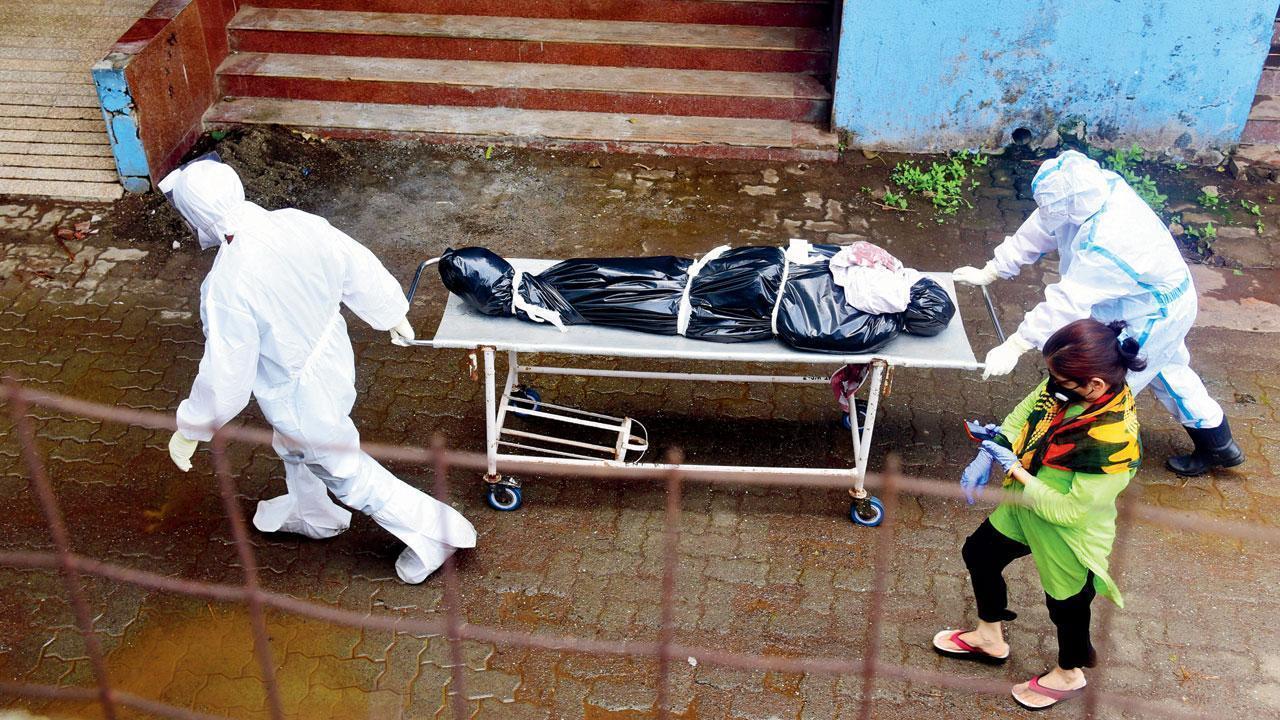Mucormycosis is a rare fungal infection which is being detected quite frequently in Covid-19 patients across the country for the past few weeks.

Photo for representational purpose
The Director of the All India Institute of Medical Sciences (AIIMS) in New Delhi, Randeep Guleria, said on Monday that Mucormycosis, a fungal infection also known as ‘black fungus, can infect the lungs, eyes and the gastrointestinal tract, and can even spread to the brain.
ADVERTISEMENT
Mucormycosis is a rare fungal infection which is being detected quite frequently in Covid-19 patients across the country for the past few weeks.
Guleria said that three type of fungal infections are found in patients with high diabetes and steroid doses -- Candida, Aspergillosis and Mucormycosis.
Mucormycosis can be categorised depending on which organ is attacked by it, he said, adding that signs and symptoms of the infection also vary depending on the affected body part.
"The Rhino orbital cerebral Mucormycosis infects the nose, orbit of eye/eye socket, oral cavity and can even spread to the brain. The symptoms include headache, nasal congestion, nasal discharge (green colour), pain in sinus, bleeding nose, swelling on face, lack of sensation on face and skin discolouration.
Also Read: After black and white, now Yellow Fungus reported in UP’s Ghaziabad
"The Pulmonary Mucormycosis affects the lungs. It causes fever, chest pain, cough and coughing of blood. The fungus can also infect the gastrointestinal tract," Guleria said
"The Candida fungal infection can manifest with symptoms such as white patches in the mouth, tongue and oral cavities; it can infect the private parts and can also be found in the blood (in which case it can become serious).
"Aspergillosis, which is relatively uncommon, affects and invades the lungs by creating cavities in the lungs. What is observed during the pandemic is mostly Mucormycosis; Aspergillosis is observed occasionally, while Candida in found in some people," the AIIMS Director noted.
Speaking about the high-risk category of people who are being infected by Mucormycosis, Gularia said: "90-95 per cent of patients getting infected by Mucormycosis are found to have been either diabetic and/or taking steroids. This infection is seen very rarely in those who are neither diabetic, nor taking steroids."
Guleria also said that Covid-19 positive patients, who have uncontrolled diabetes and use steroids, should immediately report to the doctors.
"If the warning signs for Mucormycosis -- such as headache, rusting or bleeding from nose, swelling below the eye, lowering of facial sensation -- are observed in high-risk patients or those taking steroids, they need to inform to doctors so that early diagnosis and treatment can be given," Guleria said.
This story has been sourced from a third party syndicated feed, agencies. Mid-day accepts no responsibility or liability for its dependability, trustworthiness, reliability and data of the text. Mid-day management/mid-day.com reserves the sole right to alter, delete or remove (without notice) the content in its absolute discretion for any reason whatsoever.
 Subscribe today by clicking the link and stay updated with the latest news!" Click here!
Subscribe today by clicking the link and stay updated with the latest news!" Click here!






